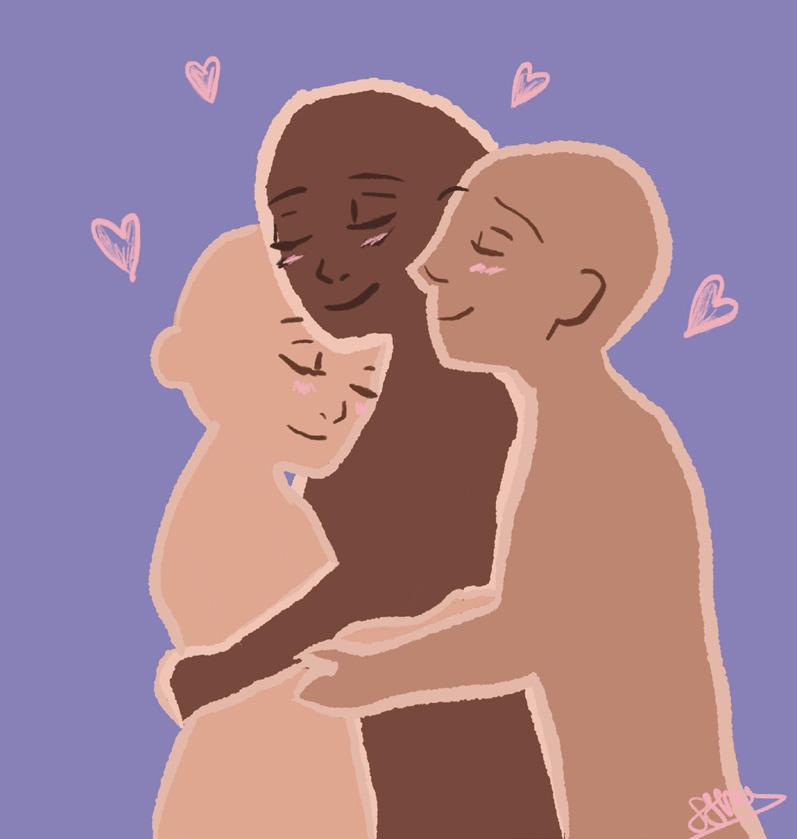Film and Tv
18
In Search of Onscreen Representation On-screen representation within film and TV has a very distinctive meaning to me. My housemates in my second year of university loved to put on the TV show Friends as background noise, whenever we had lazy days around the house. In their immediate reactions whenever we discussed which character was who, I was already labelled as Phoebe Buffay. To me, Phoebe is such an endearing character and has the ability to express herself in any way, and that is quite accepting particularly to us as an audience because that is who she is as a person. Throughout the seasons, you gain a sense of familiarity with her. She has iconic one liners from “Oh no” to lines that make no sense, such as “They don’t know that we know they know we know”. She embraces herself as being weird, and grabs it with all her strength. I see myself in her, as being a one-of-a-kind, happy-golucky person who doesn’t take life too seriously. I also struggled for most of my life, to try and fit myself into a category- as I feel like I am not a typical ‘girly girl’. I like to get stuck in and be clumsy in the meantime, but I enjoy being completely ‘Meg’- which is the same for Phoebe’s character. You never know what will come out of her mouth, and that is what makes the TV series so addictive and exciting to watch as a viewer. I feel like Lady Bird resonates with me too, alongside the two main protagonists in Booksmart. They have such eccentric styles, which again, is used to show them as ‘different’. Saoirse Ronan plays the character of the eccentric Christine, a.k.a ‘Lady Bird’, who explores relationships in a very heartfelt way. The female leads in Booksmart are Beanie Feldstein and Kaitlyn Dever as Molly and Amy respectively, following them as they are about to graduate high school.
The extremely relatable feelings and expectations surrounding what it is like to be a teenager about to experience adulthood, is manifested through funny, yet realistic attempts to party and shows intimate depth during this period of time that is so pivotal to one’s growth. This warm nostalgia through the friendships that are being presented on-screen, to the joys and harsh realities of rejection, and having to figure things out on your own- that is what onscreen representation feels like to me; performances of characters that haven’t got it all figured out, and are still learning and growing through their mistakes. It is also great for women to take on these big roles as female leads as there have been far fewer opportunities for women and minority groups, such as the BAME community, to play different characters and exert their unique identities into roles onscreen. The woman has often been the girlfriend or the wife of the lead character, and this devalues the female performance, as they are more likely to fade into the background. An article from Forbes showed that having diverse roles is super important for your identity and health, as well as your well-being. This includes exposure to different archetypes within film and TV, particularly to characters that exhibit much more normal behaviour, and not all that perfect glamour we are so used to seeing be portrayed. These are the types of women that seem to have the ‘perfect’ job, boyfriend/friends and lifestyle. Watching TV and film when you grow up has an effect on your outlook on life. I feel it is so important to feel like you are represented onscreen as the main character who has to tackle obstacles but is also fully authentic - I believe that it creates a nurturing experience. Words by: Megan Evans Design by: Isabel Brewster








